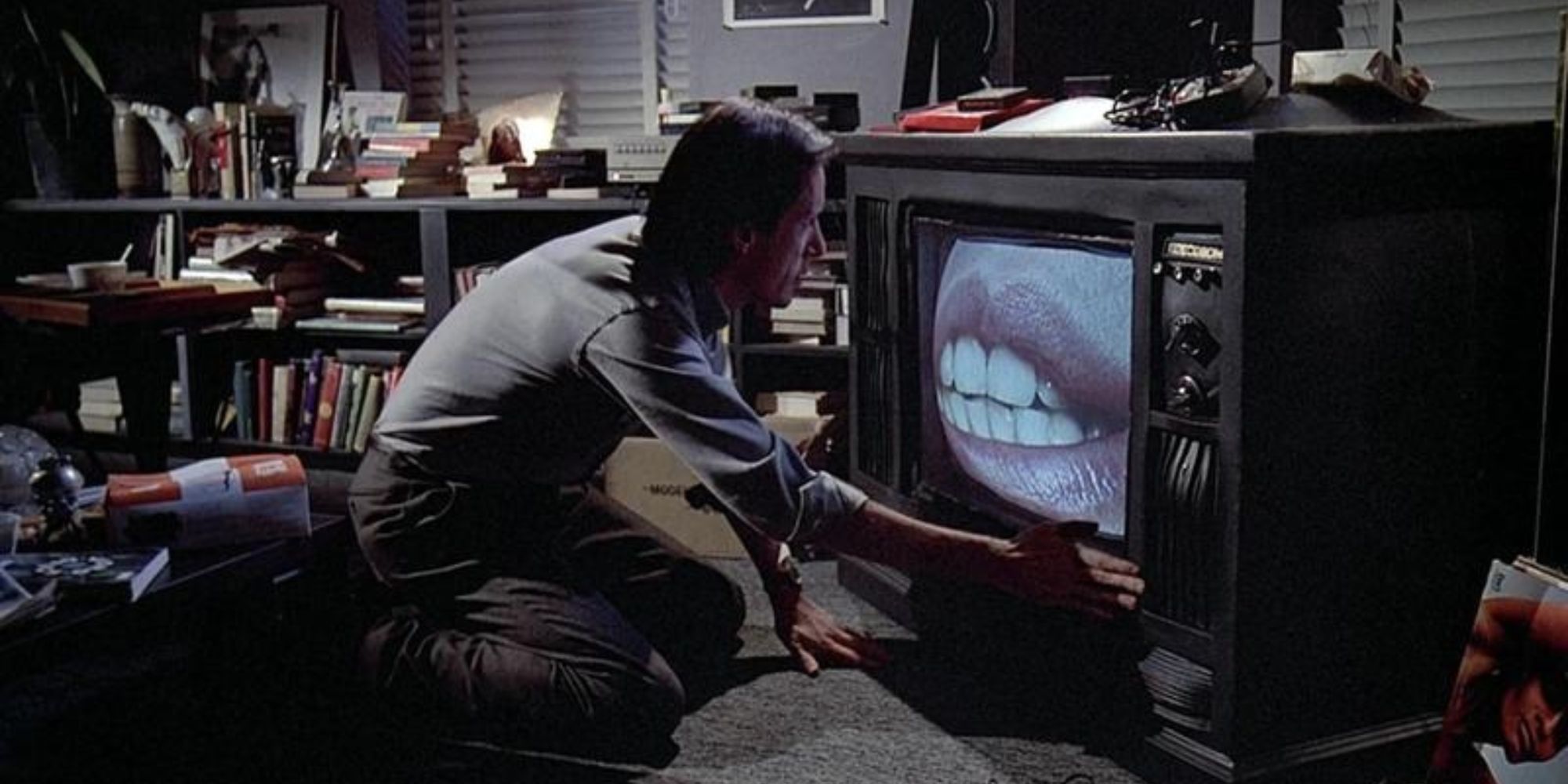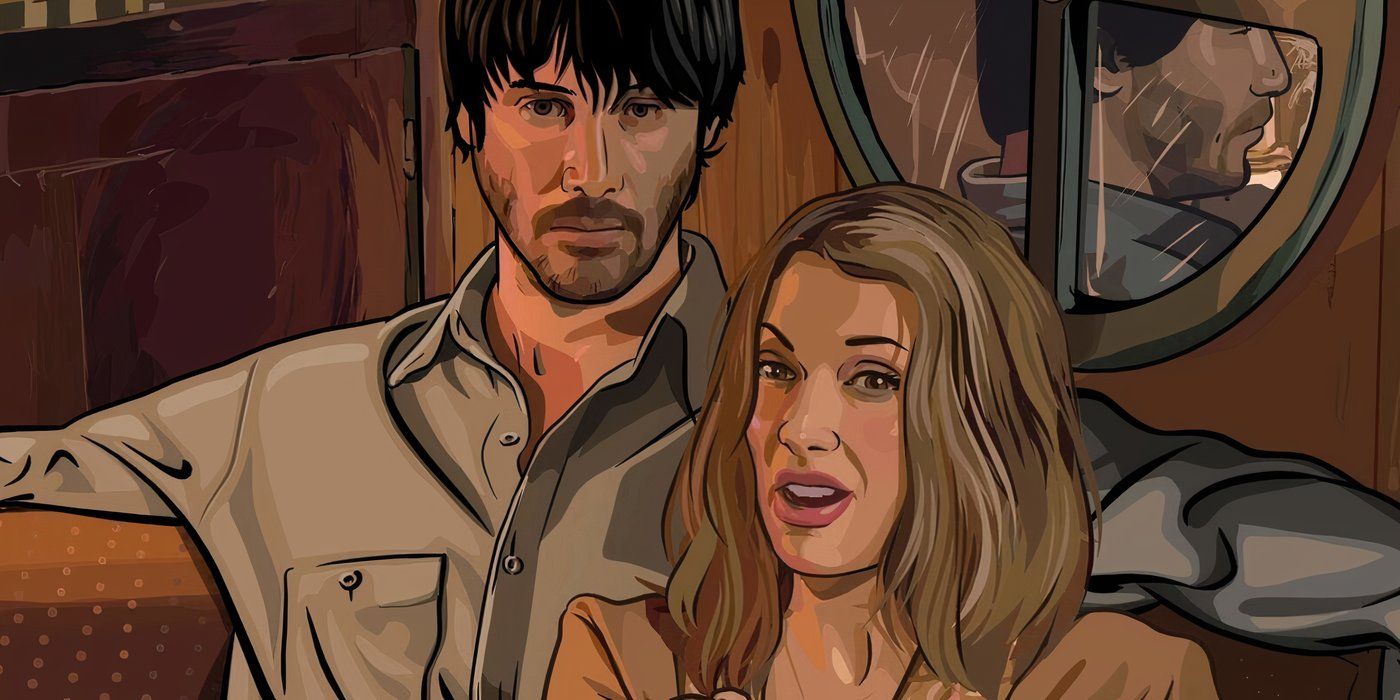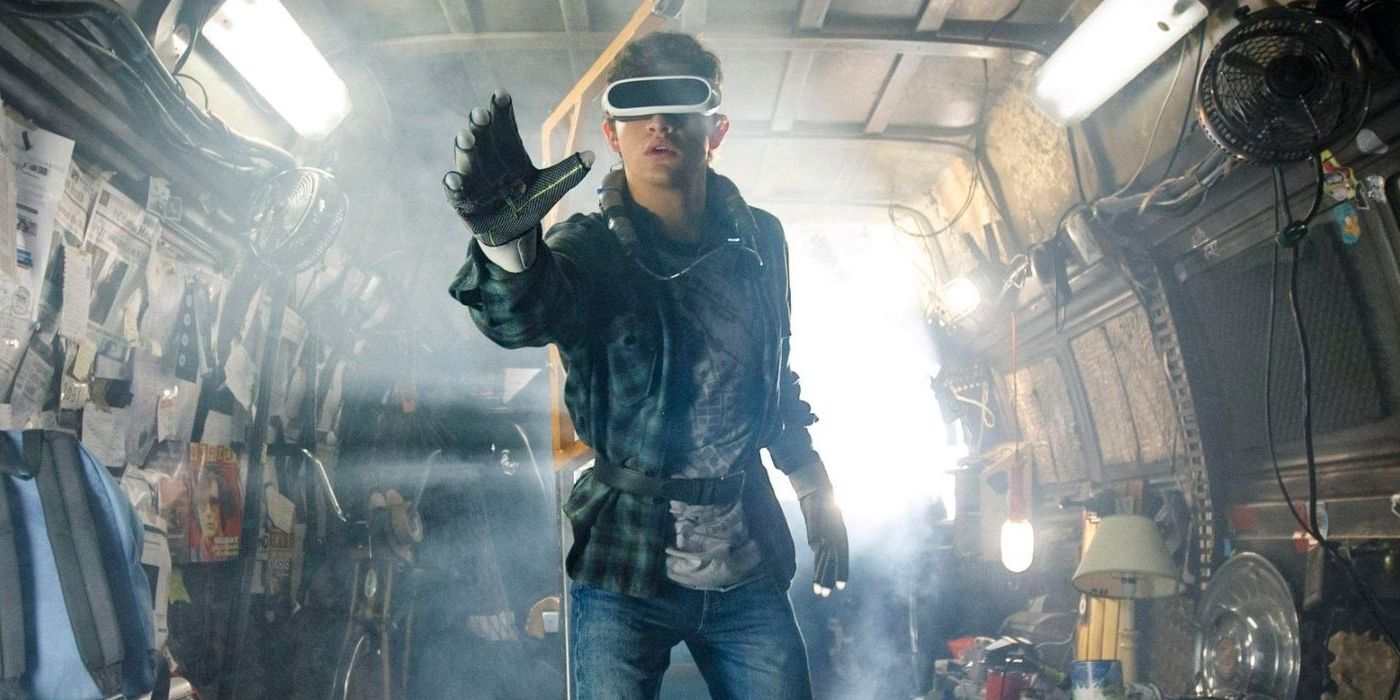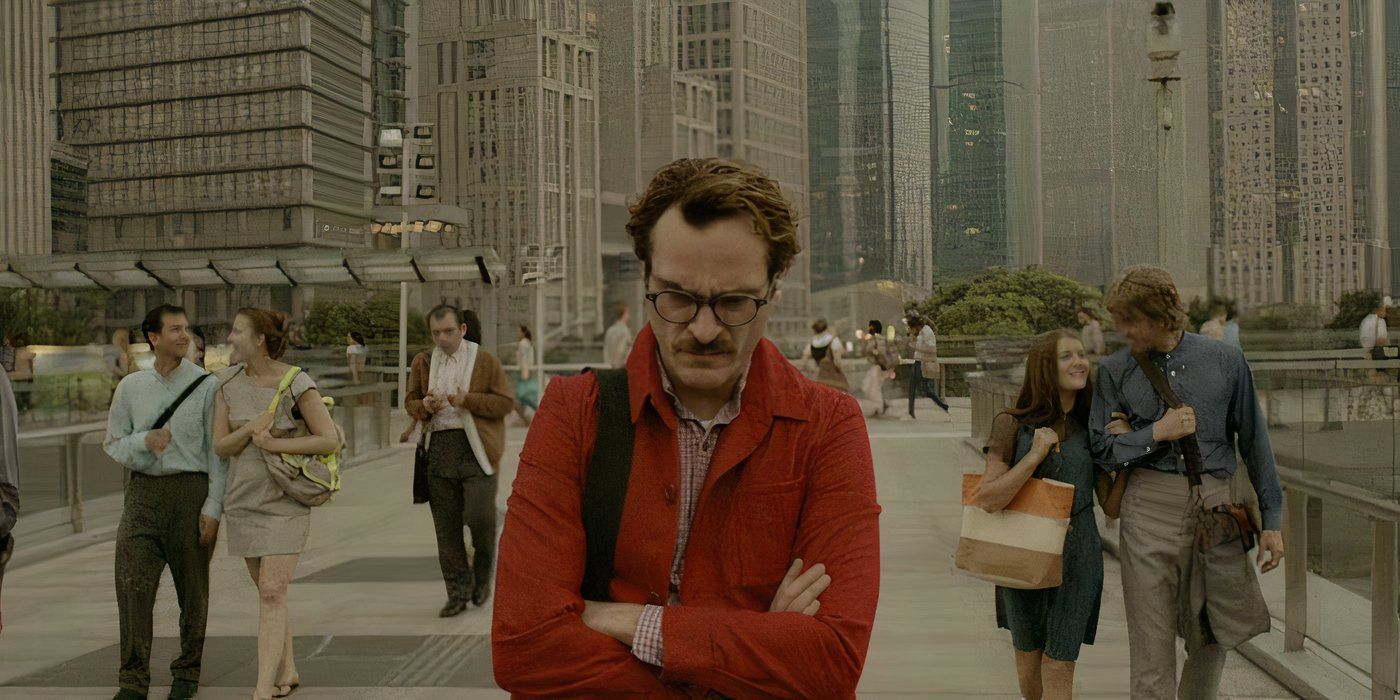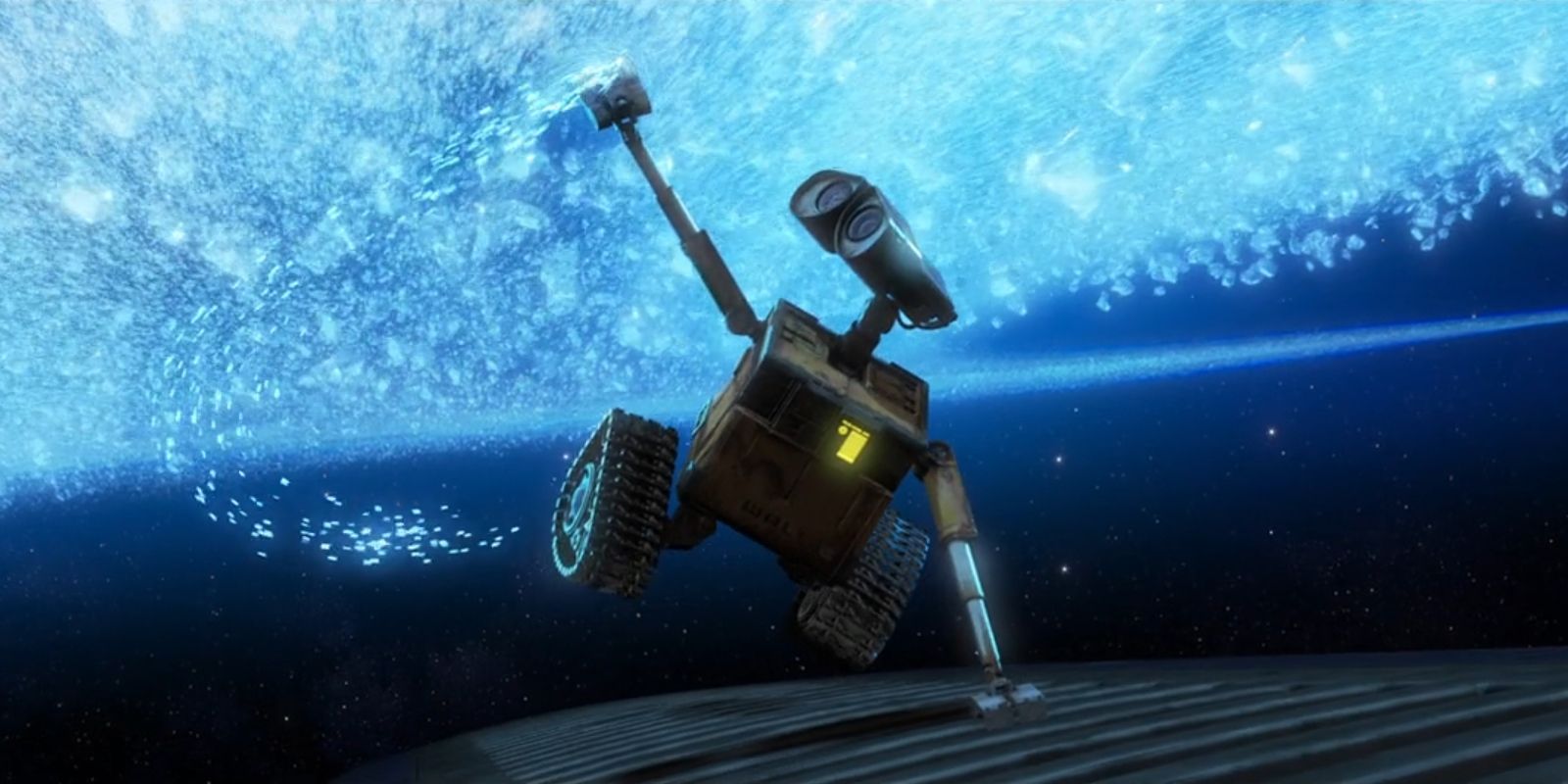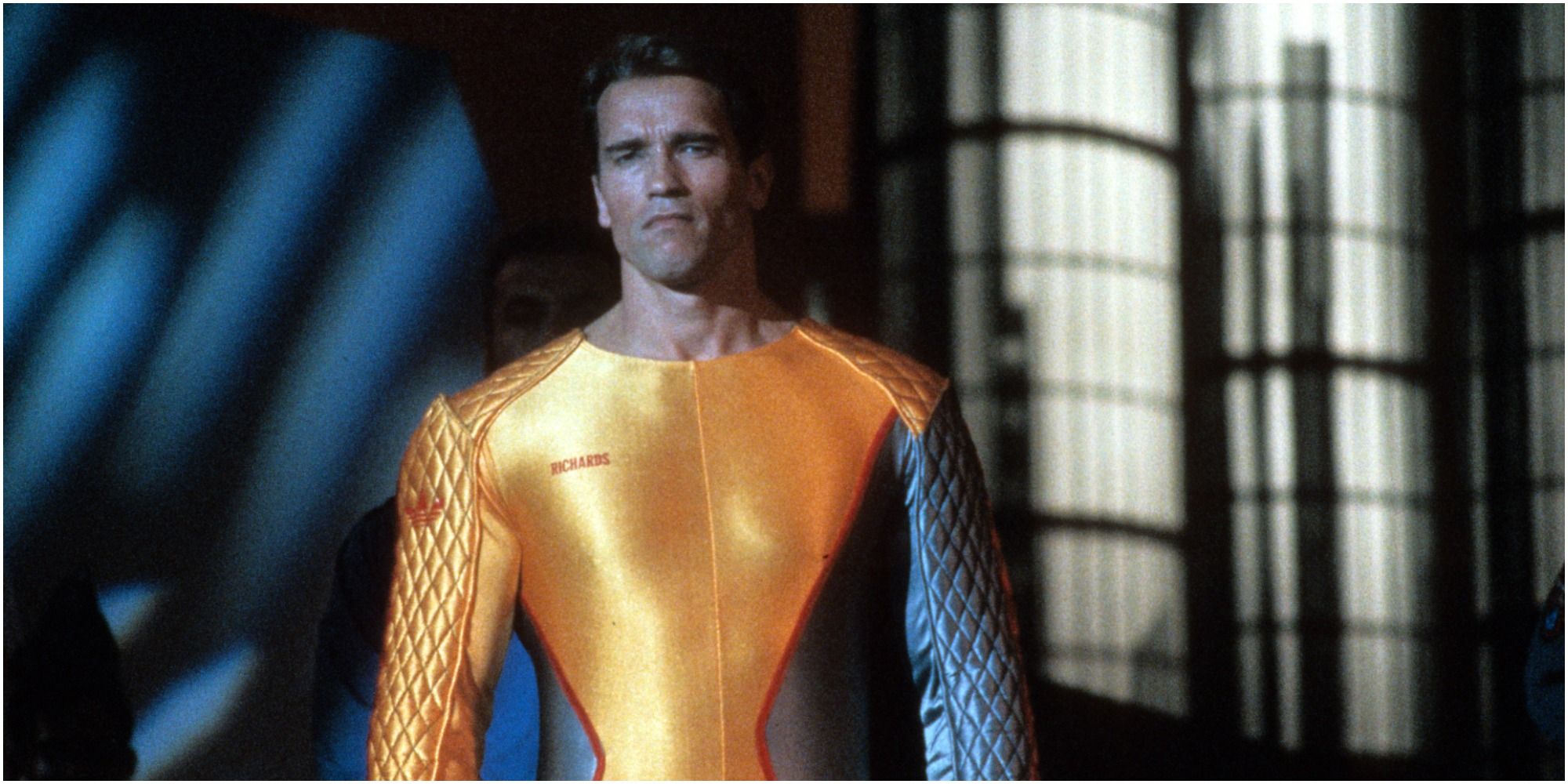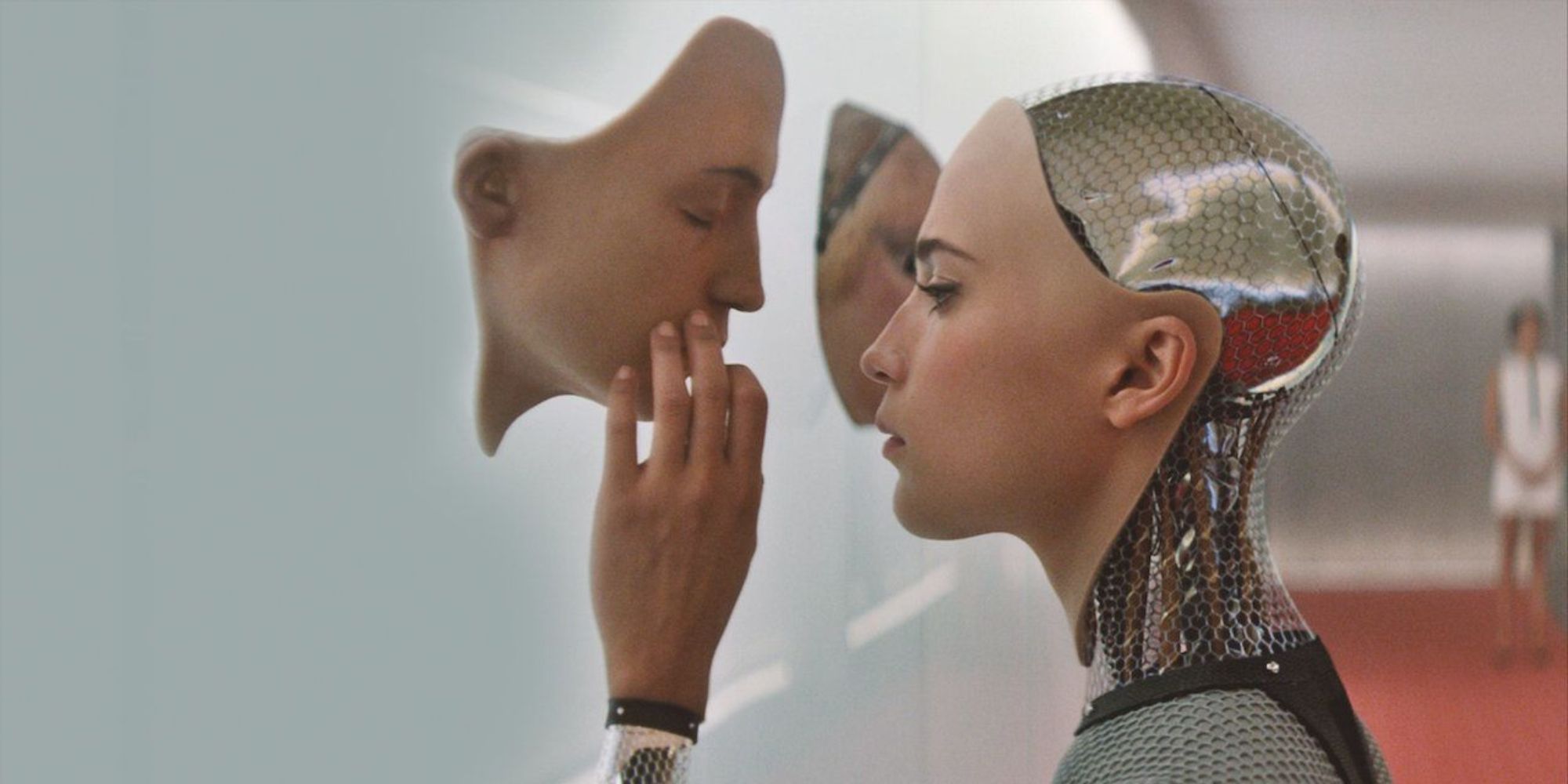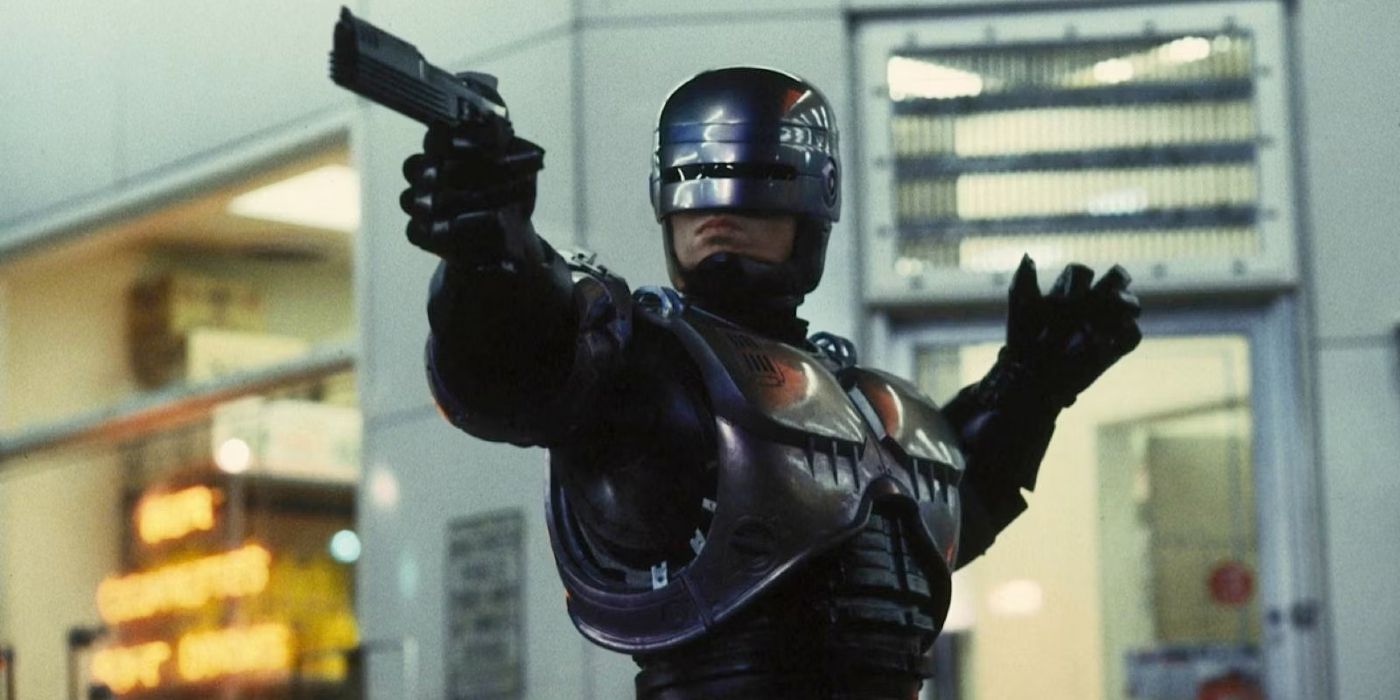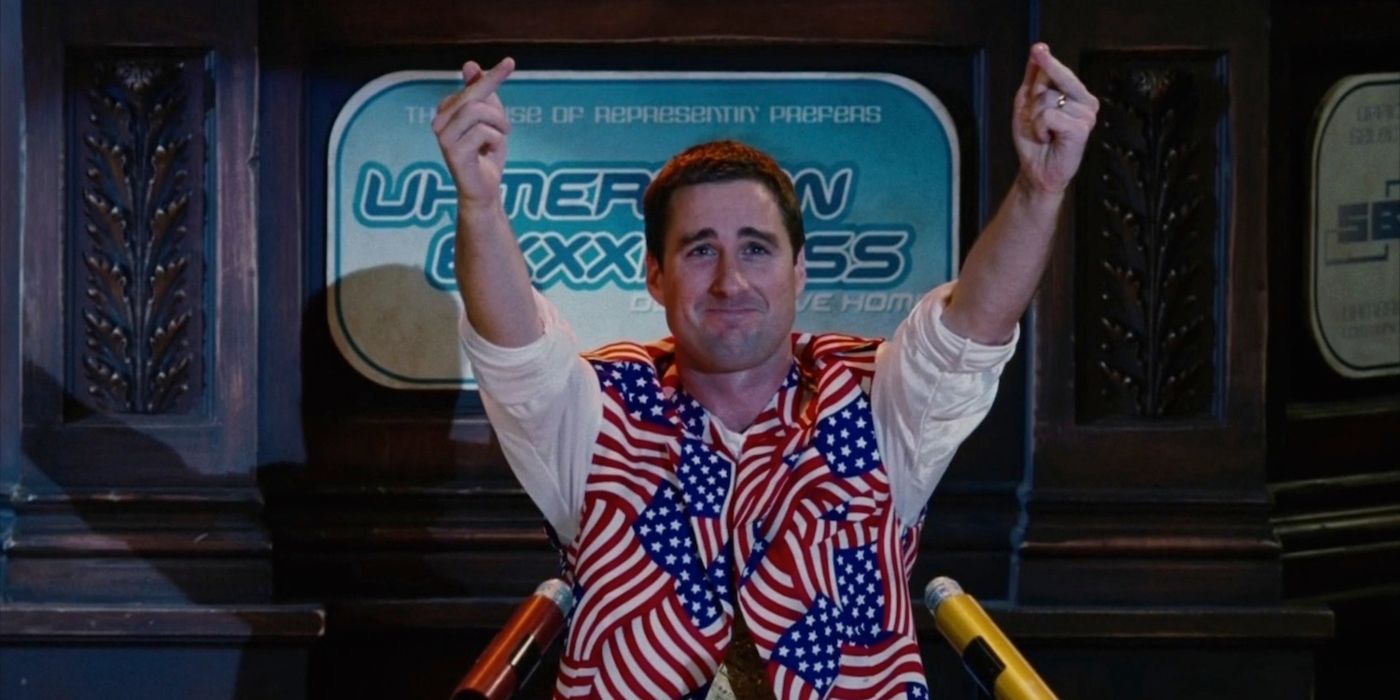Science fiction has long been one of cinema’s most provocative and contemplative genres. Many of the genre’s best examples use established tropes, elaborate story worlds, and unique perspectives to highlight and explore contemporary issues in society. While this approach ensures such films always have a certain thematic relevance, it has also seen some movies be eerily prophetic with their dark and disturbing premises.
Ranging from absurdist and even satirical takes on consumerism to graphic commentaries on humanity’s growing infatuation with technology and entertainment, and even to the odd ’80s action blockbuster, these films are loaded with ideas that may seem ridiculous initially but are frighteningly close to becoming reality. Big on the science, distressingly light on the fiction, and all-out worrying for civilization, these terrifying tales could be a cynical sign of things to come.
10
‘Videodrome’ (1983)
Directed by David Cronenberg
After breaking through with 1981’s Scanners, famed body horror icon David Cronenberg reaffirmed his striking style with Videodrome, a grueling sci-fi horror that places its focus firmly on the exploitative nature of reality television. James Woods stars as Max, the president of a television station that specializes in sensationalist material, who becomes entranced by “Videodrome,” a show depicting victims being tortured and murdered. His infatuation with the series—and his discovery that the suffering and death it depicts are actually real—steers him down a manipulative and hallucinatory road that blurs the line between reality and media.
Its pre-emptive criticism of the disturbing and dehumanizing aspect of reality TV is as prophetic as it is extreme. Videodrome skewers the notion of watching others’ misery as a form of cathartic entertainment while addressing humanity’s intensifying and murky relationship with technology. In a modern world where it is not at all uncommon to see such graphic and vile imagery on social media and the internet, there is a foul whiff of authenticity surrounding Videodrome’s confronting display as well as its grim observations on technology and entertainment.
9
‘A Scanner Darkly’ (2006)
Directed by Richard Linklater
While it is arguably best known for its all-star cast and its use of rotoscope animation, A Scanner Darkly also deserves celebration for its exploration of a grounded dystopia that has proven quite insightful. Based on Philip K. Dick’s novel of the same name, it transpires in a near-future America that has lost the war on drugs as the powerful hallucinogen “Substance D” sweeps the streets. Narcotics cop Bob Arctor (Keanu Reeves) goes undercover, hoping to immerse himself in the drug world to ferret out a major dealer. However, he finds himself developing an addiction in the process.
Naturally, the film takes its thematic focus to rather extreme levels. Still, its interest in the growing presence and influence of drug addiction and surveillance technology has an eerie reminiscence of how the world has changed in recent decades. Additionally, its underlying commentary on a generational mental health crisis isn’t too far detached from reality either. Sadly, all of these are issues that appear likely to only be exacerbated in the years to come.
8
‘Ready Player One’ (2018)
Directed by Steven Spielberg
There is no secret as to where Ready Player One’s similarities to modern society linger. Helmed by Steven Spielberg, the action-adventure sci-fi bonanza transpires in a dystopian near future where the masses turn to the immense virtual reality world of the OASIS for entertainment. Not only does it result in a civilization where people spend their lives in a made-up world, but it also sees corporate heads trying to seize control of the OASIS to turn a profit.
Even from the film’s release—let alone from when the original novel was published in 2011—Ready Player One has become more prescient. The rising popularity and advancing technology of virtual reality gaming have begun to mimic the experience the OASIS provides, while the ever-opportunistic endeavor of companies to profit off the lucrative industry has only intensified. Also consider the film’s commentary on the economic crisis in the real world, and Ready Player One stands as not only a visually overwhelming and relentlessly referential adventure, but a rather grim look at a reality not too far removed from ours.
7
‘Her’ (2013)
Directed by Spike Jonze
Compared to tyrannical dystopian worlds and near-futures devastated by environmental catastrophe, the pending reality of Her doesn’t seem too outwardly terrifying. After all, the tender romantic sci-fi, directed by Spike Jonze, follows a lonely greeting card writer as he develops deep feelings for his new AI system with an advanced ability to learn and communicate. The unnerving elements of the film have become more apparent in time, with its focus on humanity’s relationship with technology—and our diminishing ability to relate to one another—becoming more prophetic with each passing year.
The idea that an individual could find in their computer a bond that is more pleasant and gratifying than one they could form with another person is still largely outlandish, but it isn’t beyond the realms of conceivable possibility. Sadly, this is as much a byproduct of society’s fraying and increasingly vitriolic predisposition as it is a result of the evolution of artificial intelligence. While Her realizes this with a sweetness and poignancy, the possibilities of what such a relationship in the real world could inspire are perhaps more frightful, especially with AI being such an uncontrolled entity.
6
‘WALL-E’ (2008)
Directed by Andrew Stanton
A highlight of Disney animation this century, WALL-E is a considered and quaint sci-fi adventure that touched millions of viewers of all ages with its tender story of love and good-natured heroism. WALL-E (Ben Burtt) is the last of a legion of waste disposal robots left on Earth to clean the planet as humanity flees on a spaceship. WALL-E’s daring pursuit of a scouting robot he falls in love with inadvertently inspires a content and borderline catatonic mankind to determine the viability of returning to Earth.
The robot love story aside, WALL-E is one of Disney’s boldest animated films this century. Its endeavor to showcase the aftermath of a world decimated by rampant consumerism, greed, and human ignorance towards waste management is piercing and has become more prescient. Especially haunting is its depiction of humans as a gluttonous and blissfully entertained species who, for large stretches of the movie, find their interest in restoring the planet being undermined by stupidity and lack of conviction.
5
‘The Running Man’ (1987)
Directed by Paul Michael Glaser
Another cult icon of ’80s cinema that takes aim at the then-growing phenomenon of reality TV and America’s evolving appetite for violence, The Running Man is a peculiar blend of sci-fi, action, and satire that feels surprisingly more pointed today than it did upon release. It stars Arnold Schwarzenegger as Captain Ben Richards, a wrongfully convicted police officer who finds an avenue to freedom in the form of “The Running Man,” a brutal game show in which convicts compete as “runners” progressing through four quadrants while being pursued by masked killers known as “stalkers.”
While the setting takes issues of violence, corruption, and totalitarian control to extreme measures to ratchet up the tension, The Running Man worryingly resembles several aspects of modern life that we have grown accustomed to. The intensifying standard of reality TV is certainly one of these elements, but so too is the film’s inclusion of issues of censorship and authoritative governments. An upcoming remake starring Glen Powell will come out this year, so let’s hope it maintains its thought-provoking themes.
4
‘Brazil’ (1985)
Directed by Terry Gilliam
Terry Gilliam’s Brazil is something of an absurdist masterpiece, a picture of inspired peculiarity that, in its most extreme and experimental moments, captures the essence of the feelings of confinement it explores. It follows Sam Lowry (Jonathan Pryce), a low-level bureaucrat who becomes a dangerous enemy to his authoritative, dystopian society when his pursuit of the woman of his dreams leads him to defy the system.
Its criticisms of the sterilization and inhumanity of the workforce have only grown more resonant over time, with Lowry’s story mimicking the lives of millions of people around the world who feel ensnared by the monotonous droning of the 9-5 workday that cripples overt notions of individualism and personality. In this regard, Lowry’s plight is as relatable as his passionate ploy to break free. The film’s ominous conclusion suggests insanity is the only way one can be truly untethered in such a controlled society, a grim but intriguing thought.
3
‘Ex Machina’ (2014)
Directed by Alex Garland
Artificial intelligence is becoming increasingly prominent in the modern world. As such, the relationship between humanity and AI will be one of the most defining social innovations of our time. While the aforementioned Her explores this concept with tenderness and warmth, Ex Machina serves as a hauntingly intimate yet cold examination of how the bond could unravel. It follows a programmer as he partakes in a series of experimental conversations with an advanced AI system at the invitation of his enigmatic employer.
The harrowing reality of Ex Machina comes in the nuance and detail with which it explores AI. It doesn’t reduce it to a binary force of sinister problem-solving pragmatism, nor as an extension of humanity, but realizes it as a calculating and unfeeling entity with near-limitless intelligence. The idea of an actual complex android like Alicia Vikander’s Ava may be far-fetched at this stage, but the themes of control, manipulation, and morality—as well as the ambiguous relationship between mankind and artificial intelligence—feel decisively relevant today.
2
‘RoboCop’ (1987)
Directed by Paul Verhoeven
On the surface, RoboCop is a propulsive action flick about an experimental police cyborg that takes to cleaning up the crime-riddled streets of a futuristic Detroit with extreme prejudice. However, its bubbling underbelly has become far more apparent today, and its message of police forces in economically stratified societies used as a private for the elite at the expense of constitutional rights is not too far-removed from some of the more extreme examples of police clashing with protesters, not only in America, but in several countries around the world.
Perhaps the most compelling aspect of the film is its prescience. Upon reflection, with a mind towards the modern day as well, is the way it depicts the rising influence of major corporations, not only as profiteering financial entities, but as major players in the political arena. In a world where corporate interests have become a determining influencer of governance and politics, RoboCop feels less like a speculative, senseless blockbuster and more like an ominous reflection of modern society.
1
‘Idiocracy’ (2006)
Directed by Mike Judge
In 2006, Idiocracy was a comedy so absurd and so stupid that it could only be laughed at as a display of utter silliness. Today, it is tinged with a bleak and alarming plausibility of the direction Western society is heading. The Mike Judge comedy follows two ordinary, unexceptional Americans (Luke Wilson and Maya Rudolph) as their agreement to take part in a secret hibernation experiment sees them awaken 500 years in the future, where they are by far the most intelligent humans in the country.
Not only is Judge’s vision of the future one where consumerism runs rampant, but it also depicts widespread anti-intellectualism with striking pointedness. It’s not just a rise of stupidity, but a complete societal abandonment of any form of value in education that spurs a calamitous cultural decay that sees people prioritize shallow entertainment and convenience over everything else. Idiocracy’s commentary on corporate influence, politically disengaged and irresponsible citizens, and the degradation of public discourse echoes unsettling truisms of modern-day America.

